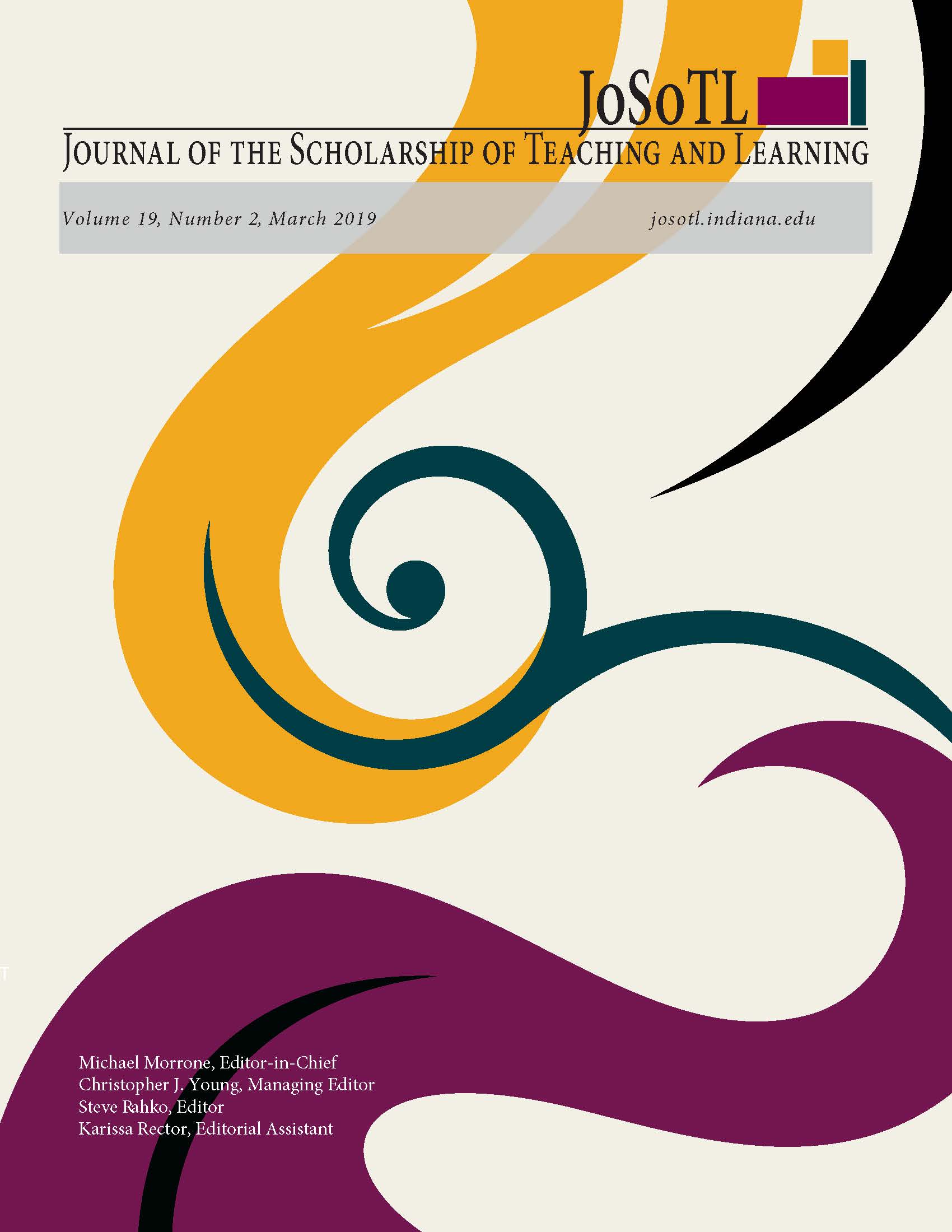Cultivating a Process Approach to Writing: Student Experiences in a Developmental Course
Main Article Content
Abstract
Many developmental writing courses in colleges focus on teaching students isolated skills, with little emphasis on how such skills are applicable to the actual process of writing. This article focuses on capturing the perspectives of students enrolled in a developmental writing course designed around an explicit process-oriented pedagogy. The instructor assigned metacognitive tasks and aimed to be transparent with students about the purpose of all course activities and assignments. The findings point to the various ways students can learn to value and use a process approach when writing. The paper concludes with recommendations for helping both instructors and institutions foster a process-oriented writing culture in college classrooms. It also points to future research possibilities.
Downloads
Article Details
- Authors retain copyright and grant the Journal of the Scholarship of Teaching and Learning (JoSoTL) right of first publication with the work simultaneously licensed under a Creative Commons Attribution License, (CC-BY) 4.0 International, allowing others to share the work with proper acknowledgement and citation of the work's authorship and initial publication in the Journal of the Scholarship of Teaching and Learning.
- Authors are able to enter separate, additional contractual agreements for the non-exclusive distribution of the journal's published version of the work (e.g., post it to an institutional repository or publish it in a book), with an acknowledgement of its initial publication in the Journal of the Scholarship of Teaching and Learning.
- In pursuit of manuscripts of the highest quality, multiple opportunities for mentoring, and greater reach and citation of JoSoTL publications, JoSoTL encourages authors to share their drafts to seek feedback from relevant communities unless the manuscript is already under review or in the publication queue after being accepted. In other words, to be eligible for publication in JoSoTL, manuscripts should not be shared publicly (e.g., online), while under review (after being initially submitted, or after being revised and resubmitted for reconsideration), or upon notice of acceptance and before publication. Once published, authors are strongly encouraged to share the published version widely, with an acknowledgement of its initial publication in the Journal of the Scholarship of Teaching and Learning.
References
Ambrose, S.A., Bridges, M.W., DiPietro, M., Lovett, M.C., & Norman, M.K. (2010). How learning works: Seven research-based principles for smart teaching. San Francisco, CA: Jossey-Bass.
Beaufort, A. (2007). College writing and beyond. Logan, Utah: Utah State University Press.
Callahan, M.K. & Chumney, D. (2009). Write like college: How remedial writing courses at a community college and a research university position at-risk students in the field of higher education. Teachers College Record, 111(7), 1619-1664.
Cochran-Smith, M. & Lytle, S.L. (1993). Inside/Outside: Teacher research and knowledge. New York: Teachers College Press.
Community College Research Center. (2014). What we know about developmental education outcomes. Retrieved from http://ccrc.tc.columbia.edu/media/k2/attachments/what-we-know-about-developmentaleducation-outcomes.pdf
Conley, D. (2005). College knowledge: What it really takes for students to succeed and what we can do to get them ready. San Francisco, CA: Jossey-Bass.
Council of Writing Program Administrators, National Council of Teachers of English, & National Writing Project. (2011). Framework for success in postsecondary writing. Retrieved from http://wpacouncil.org/files/framework-for-success-postsecondary-writing.pdf
Cox, R. (2009). The college fear factor: How Students and professors misunderstand one another. Cambridge, MA: Harvard University Press.
Creswell, J.W. (2007). Qualitative inquiry and research design: Choosing among five approaches (2nd ed.).Thousand Oaks, CA: Sage Publications, Inc.
Downs, D. (2015). Revision is central to developing writing. In L.A. Kassner & E. Wardle (Eds.) Naming what we know: Threshold concepts of writing studies. Boulder, CO: University Press of Colorado.
Downs, D. & Wardle, E. (2007). Teaching about writing, righting misconceptions: (Re)envisioning “First-year composition” as “Introduction to writing studies.” College Composition and Communication, 58 (4), 442-584.
Grubb, W.N. & Gabriner, R. (2013). Basic skills education in community colleges: Inside and outside of classrooms. New York, NY: Routledge.
Merriam. S. (1998). Qualitative research and case study applications in education. San Francisco, CA: JosseyBass Publishers.
Miles, M. B. & Huberman, A. M. (1984). Drawing valid meaning from qualitative data: Toward a shared craft. Educational Researcher, 13(5), 20-30.
Pacello, J. (2015). Fostering a discourse of process: A qualitative study of student perspectives on a developmental college writing course (Doctoral dissertation, Rutgers University). https://doi.org/doi:10.7282/T3KP840Z
Patton, M.Q. (1990). Qualitative evaluation and research methods (2nd ed.). Newberry Park. CA: SAGE.
Rose, M. (2012). Back to school: Why everyone deserves a second change at education. New York, NY: The New Press.
Ryan, G.W. & Bernard, H.R. (2003). Techniques to identify themes. Field Methods, 15(1), 85-109.
Winkelmes, M. (2013). Transparency in teaching: Faculty share data and improve students' learning. Liberal Education, 99(2), 48-55.
